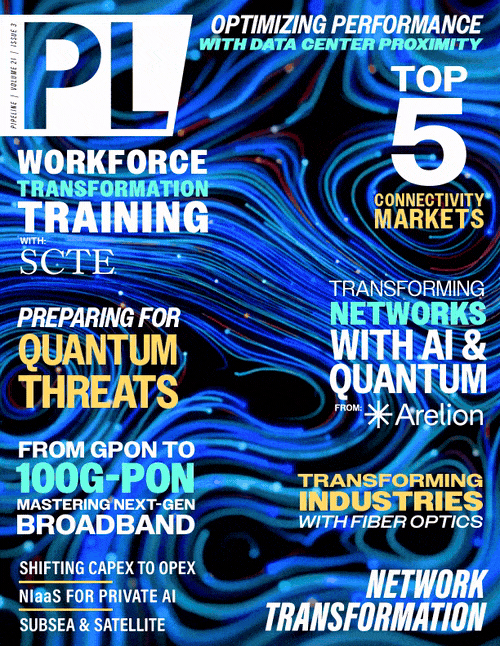Evolving Workforce Training for
Network Transformation
 Optimize and Empower Communities
Optimize and Empower Communities
To align workforce training with network transformation, SCTE curates and orchestrates resources by closely engaging with broadband operators, contractors, and other key stakeholders. This approach enables the development of a skilled workforce tailored to the specific needs of local geographies. SCTE is currently testing digital platforms designed to connect chapters, enabling them to share resources seamlessly across the broader network and with one another. Career path management tools are also in development to engage a new generation of workers who may not have previously considered careers in the industry.
Backed by unprecedented governmental investment in infrastructure, joint public and private sector efforts to expand connectivity and provide universal access to high-speed, reliable Internet, nevertheless face the challenges of a looming labor shortage in the competitive talent landscape. Preparing the workforce of the future will play a vital role in bridging this divide. However, building a program in a community without an existing organizational presence requires innovative partnerships.
SCTE’s collaborations with community colleges and local educators highlight the potential of such partnerships. For example, Rio Salado College in Tempe, Arizona, and Fort Hays State University in Fort Hays, Kansas, offer associate degree programs that integrate SCTE courses with accredited university coursework, empowering students to achieve their career goals.
By connecting resources and leveraging its ecosystem, SCTE enables the broadband industry to cultivate a workforce ready to meet evolving technological demands while attracting new generations of talent.
Creative Training and Certification Reform
A blended approach has proved essential for effective workforce development. Learners benefit most from programs that combine classroom instruction led by skilled instructors with high-quality computer-based learning and hands-on field training. These blended experiences provide the depth and practicality needed for optimal skill development.
In addition to fostering innovative and collaborative training methods, L&D leaders can build strong relationships with operational teams to ensure training aligns with business needs and strategic goals. Grounding training initiatives in business performance helps ensure their success, supported by effective reporting and analysis. Programs that balance theoretical knowledge with hands-on aptitude are key to developing a workforce ready to meet real-world demands.
![]() SCTE is enhancing certification approaches to emphasize real-world problem-solving
over traditional testing methods. For example, emerging initiatives explore how AI technologies and on-the-job experiences can complement existing certification programs, creating pathways for
technicians to develop system thinking and task-based skills. While standardized tests assess memorization, future-focused certifications intend to measure how well individuals apply knowledge in
practical scenarios, reflecting the realities of troubleshooting and network management.
SCTE is enhancing certification approaches to emphasize real-world problem-solving
over traditional testing methods. For example, emerging initiatives explore how AI technologies and on-the-job experiences can complement existing certification programs, creating pathways for
technicians to develop system thinking and task-based skills. While standardized tests assess memorization, future-focused certifications intend to measure how well individuals apply knowledge in
practical scenarios, reflecting the realities of troubleshooting and network management.
The broadband industry is entering a period of extraordinary growth, with over $300 billion in new opportunities and hundreds of thousands of new jobs projected. However, this economic boom also presents significant challenges, including a growing talent shortage and skills gap that could impact business performance and growth. To address these challenges, the industry is embracing a workforce evolution. This includes creating a more inclusive environment to attract women, underrepresented groups, millennials, Gen Z, and future generations of workers. Training programs are evolving to better prepare workers, upskill talent, and align certifications with the progression of technology and network transformation.
Traditional training methods alone cannot keep pace with these changes. By adopting forward-thinking approaches to workforce readiness, the broadband industry is positioned to meet the challenges of today and tomorrow.



















